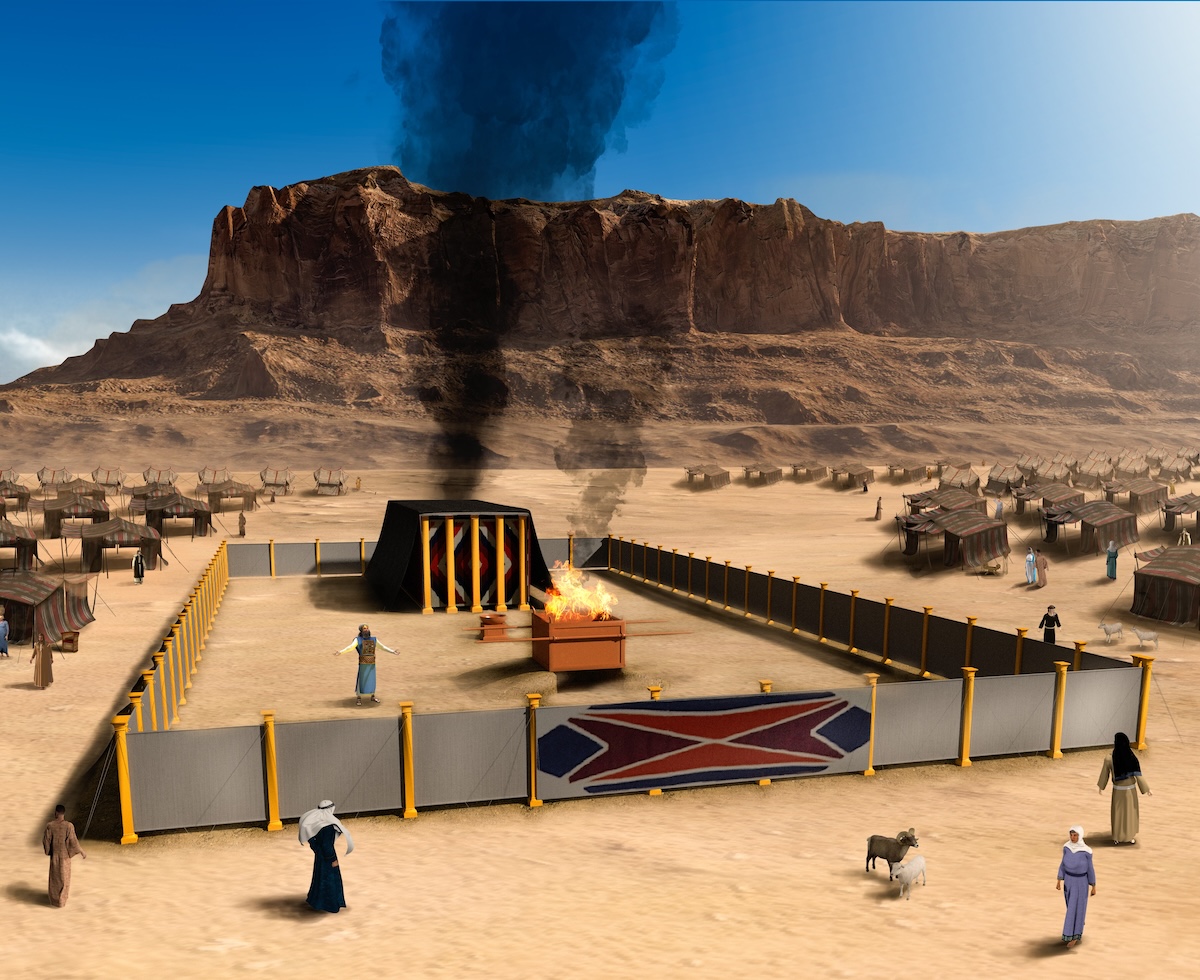
Please listen to these heartbreaking words, the words of Shmuel ha Novi to Shaul ha Melech: “Does Hashem delight in elevation offerings and feast offerings as in obedience to the voice of Hashem? Behold: to obey is better than a choice offering … Because you have rejected the word of G-d, He has rejected you as king!” (I Shmuel 15:22ff)
And then Shaul ha Melech was stripped of his malchus!
OY! The pain in this world!
I have a question on parshios Vayakhel and Pekudai. What do these parshios add to the Torah? Why are they here?
The Torah has spent weeks describing the kailim of the Mishkan and the begadim of the Kohanim. And now, the Torah devotes two parshios to words which one might have thought were unnecessary, basically, “they did what they were told.”
“Betzalel made … a cover of pure gold … He made the Shulchan … He made the menorah ….”
What is going on?
I believe that the Torah is teaching us the midah of obedience, listening to Hashem with all our heart, with all our soul and with all our resources, without ulterior motives or ego.
If only we would listen, the entire world would change in an instant!
When I was a kid, I lived amongst a crowd of Jews who were running away from the Torah as fast as their feet would carry them! (Tragically, most of those old friends are still running away.)
At that time, there was a classic advertisement (which became the trademark of the Radio Corporation of America) showing a dog listening to “His Master’s Voice” over the new invention called a “phonograph.” Although we are on a different level than animals, we can learn from them. Just as a loyal animal listens to its master’s voice, so we have to train ourselves to listen – lehavdil – to the Voice of our Master!
My childhood friends and I ran away from the Torah! The yetzer hara pumps adrenalin into us! We can run! Even after I discovered that Hashem exists, I still kept running away from Him, because I was not ready to accept His will! So I kept running. It took years until I was ready to admit that I needed to stop running and listen to the words of Torah. Even then, the yetzer hara is so strong! I am afraid I am still running!
Am I a good Yid? I could do so much better!
And now, in our Parsha, we meet Betzalel ben Uri ben Chur and Oholiav ben Achisamach, whom Hashem called by name! Oh, the honor of these great men! Hashem called them by name! They are honored forever in the Holy Torah!
What did they do to deserve this eternal honor? By what merit were they zoche to build the Mishkan?
They listened!
They listened to the Voice of Hashem! “Shema Yisroel!”
This is the biggest thing in the world!
My dear friends, this will save us! This must be one reason we say “Shema” so often, because listening to the Voice of Hashem will bring Redemption!
Rabbi Avigdor Miller zt”l had a lecture series entitled, “A Career of Listening.”
We live in a world of noise. Even in the Jewish world, we imitate the surrounding culture and drown out the “still thin voice” of Hashem.
The word of G-d came to Eliyahu ha Novi and said, “’Go out [of the cave] and stand on the mountain before Hashem.’ And behold, Hashem was passing, and a great powerful wind, smashing mountains and breaking rocks, went before Hashem. ‘Hashem is not in the wind!’ After the wind came an earthquake. ‘Hashem is not in the earthquake.’ After the earthquake came a fire. ‘Hashem is not in the fire.’ After the fire came a still, thin sound…. When Eliyahu heard this, he wrapped his face in his mantle and he went out and stood by the cave’s entrance …..” (I Kings 19:11)
My dear friends, loud people among Am Yisroel have made a lot of noise in the past year, stridently pushing their agendas. There has been much strife and contention.
If we want to build the Bais Hamikdosh, we have to be quiet and listen to the Voice of Hashem. We have to cover our eyes and say “Shema.” If we follow His Voice and His ratzon the way Betzalel and Oholiav followed His ratzon we will soon see the rebuilt Bais Hamikdosh. Hashem will dry our tears and the world will be healed.
All we have to do is listen to the Voice of Hashem and do what He says.
GLOSSARY
Begadim: Clothes (worn by the priests in the Holy Temple)
Kohain Gadol: High Priest
Kohanim: Priests
Malchus: Kingship
Midah: character trait
Mishkan: The Tabernacle, forerunner of the Holy Temple
Kailim: Vessels (in the Holy Temple)
Lehavdil: To differentiate between one thing and another
Parsha (Pl. Parshios): Torah portion
Ratzon: Will of Hashem
Shaul Hamelech: King Saul
Shmuel Hanovi: Samuel the Prophet
Zoche: To have the merit